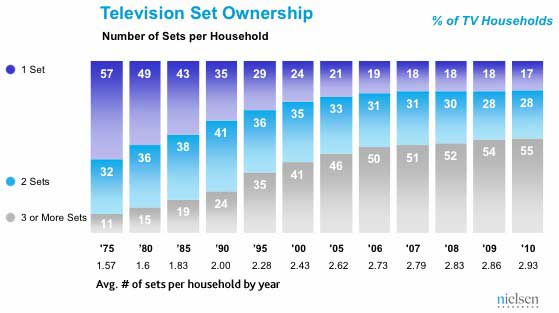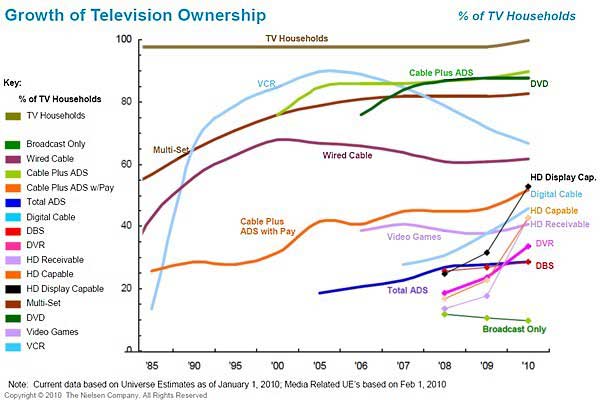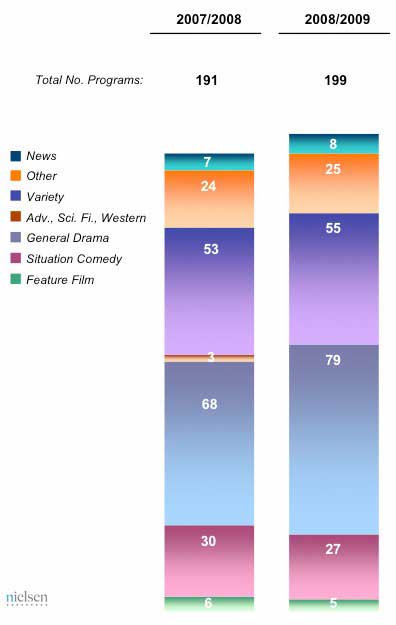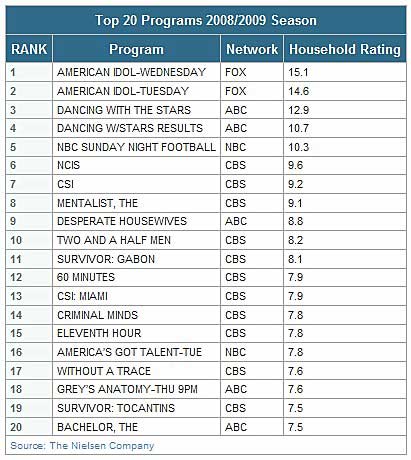Americans now have on average 2.93 TV sets per household, up from 2.86 in 2009—the largest year-over-year increase since 2006, according to Nielsen's latest Television Audience Report.

Although the US total population continues to increase, the number of people per TV home has held steady at 2.5, which means there are more TVs at home than people. Over one-half (55%) of US homes now have three or more sets, while 28% have two sets and 17% have one set, according to the report.
Other TV-related statistics from Nielsen:
- Just 9% of US homes now receive their TV signal over the air.
- 34% of homes have a DVR, up from 24% a year earlier.
- 46% of homes home are able to receive an HD signal, up from 23% in 2009.

Below, other findings issued by Nielsen.
TV Ad Spending
Network television ad spending fell 9.7% in 2009, from $22.5 billion in 2008 to 20.3 billion in 2009. Meanwhile, cable TV advertising increased 15.8%, from 16.5 billion in 2008 to 19.1 billion in 2009. Spanish language cable TV advertising also increased during the period.
Drama Rules Primetime Lineup
The number of primetime programs in the US increased to 199 during the 2008/2009 television season, up from 191 programs the previous season, according to Nielsen.
Looking for great digital marketing data? MarketingProfs reviewed more than 200 research sources and selected 64 of the best to create the Digital Marketing Factbook a 144-page compilation of data and 110 charts, covering email marketing, search engine marketing, and social media. Also check out The State of Social Media Marketing, a 240-page original research report from MarketingProfs.
Drama now accounts for 40% of all primetime programs, compared with 36% the previous season. Reality programs once again account for 28% of the prime lineup, while comedy programs account for 14%, down 2 points from from 16% during the 2007/2008.

In addition, dramas made up 9 of the top 20 primetime programs during the 2008/2009 season:

About the data: Findings are from Nielsen's Television Audience Report published in April 2010.



